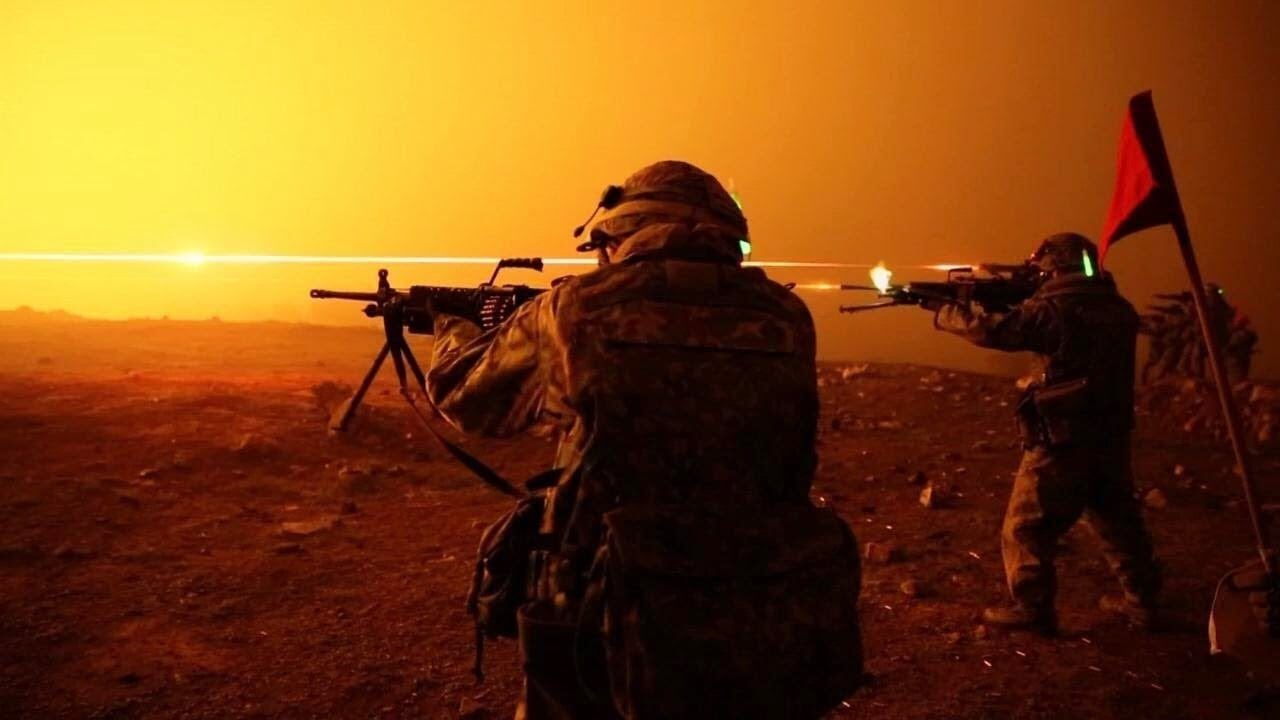Ukraine’s ‘Guerrilla’ War Against the Russian Military Has Begun: The Ukrainian partisan movement appears to be picking up speed in southern Ukraine, with most of the activity being centered on the cities of Kherson, which the Ukrainian armed forces are close to liberating, and of Melitopol and Berdyansk, in Zaporizhzhya province.
According to a recent interview with the partisan leader, Volodymyr Zhemchuhov, many of the fire-bombings of infrastructure and facilities in the Russian Federation may be the handiwork of ethnic Ukrainians living in Russia. If so, that would mean that Ukrainian guerrillas are now active in Russia as well.
Zhemchuhov also revealed two interesting items. Apparently, in February and March of this year, a Roma family living in the village of Vasylkivtsi in Zaporizhzhya province “attacked the Russians, shot them dead, and sabotaged trucks.” But, because the Roma used open telephone lines, they were found and killed.
Zhemchuhov also claims that over 250 people have been arrested for supporting the Ukrainian partisans in Kherson province—evidence perhaps of the underground movement’s consisting of no fewer members as well.
Below is a list I have compiled of the reported recent partisan activity available in open sources:
May 12, Kherson: anti-Russian graffiti appears in the city.
May 30, Melitopol, Zaporizhzhya province: bomb explosion of Mercedes owned by Yevhen Balytsky.
June 2, Berdyansk, Zaporizhzhya province: two explosions in the port area.
June 2, Berdyansk: over 10 explosions in the city.
June 4, Kherson: leaflets appear offering Bitcoins in exchange for photographs of destroyed Russian military vehicles or soldiers.
June 7, Kherson: bomb explosion in café “Nostalgie” near city administration building. Possible Russian provocation.
June 9, Mariupol, Donetsk province: several Russian trucks set on fire.
June 10, Kherson: Russian National Guard vehicle with a Russian officer and three soldiers destroyed.
June 11, Mariupol: Russian official knifed and killed.
June 12, Melitopol: bomb explosion near “Ministry of Internal Affairs” building. Possible Russian provocation.
June 12, Berdyansk: three explosions in the city. The electricity grid was temporarily disabled in part of the city.
June 17, Kherson: anti-Russian graffiti appears in the city.
June 17, Nova Kakhovka, Kherson province: explosion in the city, possibly the latest in a series of recent explosions.
June 18, Kherson: bomb explosion of Audi owned by Yevhen Sobolyev.
June 20, Kherson: two Russian soldiers shot and killed in a café.
June 20, Kherson: anti-Russian leaflets appear in the city.
June 22, Chornobayivka, Kherson province: bomb explosion of car owned by Yuri Turulov.
June 23, Kherson: partisans release video calling on Russian soldiers to save their lives and withdraw.
June 24, Kherson: bomb explosion of Audi owned by Dmytro Savluchenko, who is killed.
June 24, Melitopol: partisans offer $10,000 bounty for Yevhen Balytsky.
June 26, Kakhovka, Kherson province: car owned by Iryna Makhnova torched.
July 2, Mariupol: anti-Russian graffiti appears in the city.
July 2, Kherson: pro-Ukrainian artwork appears in the city.
July 2-3: near Melitopol: train derailed and a railroad bridge destroyed.
July 3, Crimea: report of anti-Russian resistance.
Of the 26 guerrilla events listed above, 14 transpired in Ukraine’s Kherson province—precisely where Ukrainian forces are advancing in preparation for a counter-offensive that, if successful, would return control of water supplies to Crimea to Ukraine and destroy Russia‘s land corridor to the peninsula. That would be a strategic victory for Ukraine’s armed forces and partisans.
Dr. Alexander Motyl is a professor of political science at Rutgers-Newark. A specialist on Ukraine, Russia, and the USSR, and on nationalism, revolutions, empires, and theory, he is the author of 10 books of nonfiction, including Pidsumky imperii (2009); Puti imperii (2004); Imperial Ends: The Decay, Collapse, and Revival of Empires (2001); Revolutions, Nations, Empires: Conceptual Limits and Theoretical Possibilities (1999); Dilemmas of Independence: Ukraine after Totalitarianism (1993); and The Turn to the Right: The Ideological Origins and Development of Ukrainian Nationalism, 1919–1929 (1980); the editor of 15 volumes, including The Encyclopedia of Nationalism (2000) and The Holodomor Reader (2012); and a contributor of dozens of articles to academic and policy journals, newspaper op-ed pages, and magazines. He also has a weekly blog, “Ukraine’s Orange Blues.”

